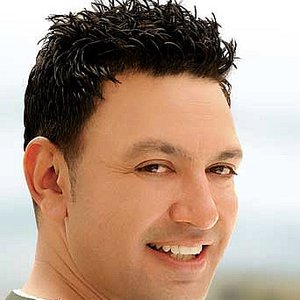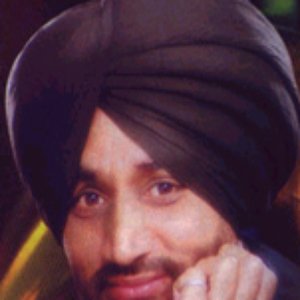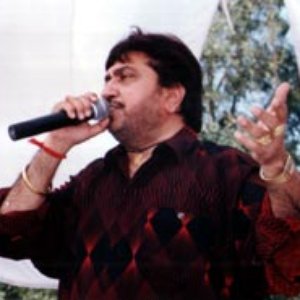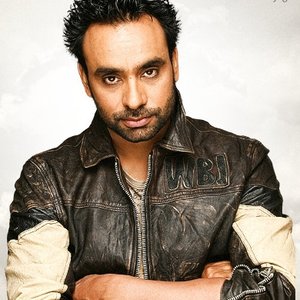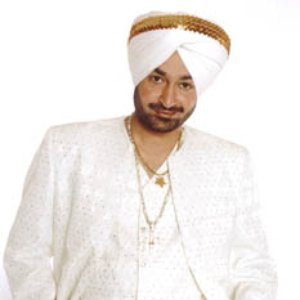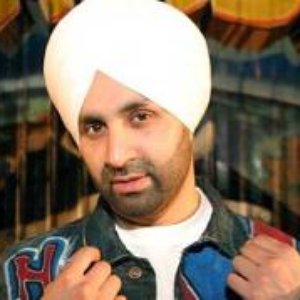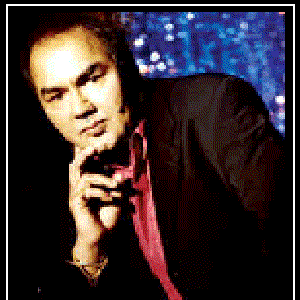Biography
-
Born
4 January 1957 (age 67)
-
Born In
Punjab, India
Gurdas Maan (Punjabi: ਗੁਰਦਾਸ ਮਾਨ, gurdās mān) is a Punjabi singer, songwriter, choreographer and actor. He was born on January 4, 1957 in Giddarbaha, Muktsar, Punjab, India. He gained national attention in India in 1980 with the song Dil Da Mamala Hai. Since then he has gone on to record over 27 albums and has written over 200 songs. Gurdas Maan is a legendary Punjabi singer and is considered as the heart of Punjab. His top hits have given him worldwide admiration.
Contents
The legendary Gurdas Maan is today one of the most popular Punjabi alive. This bright shining star of Punjabi music and films has held the top spot hostage for nearly two decades. He has maintained an unprecedented universal appeal and won the heart of many global audiences.
His style is unique and deviates from that of the many singers around with his extraordinary blend of vocal prowess and charisma that glows in his stage presence.
This is the man who started singing as a hobby and never thought he was good enough to become a professional singer until he started winning competitions at college. Since then he has exerted some kind of tidal pull over his audiences. He is one of those rare individuals who hypnotizes you with his persona and his power of speech.
This college lecturer who holds a Masters degree in Physical Education and a black belt in Judo exploded into the music world in 1982 with his first recording 'Dil Da Mamla' and turned the success of this album into a fruitful film career.
Gurdas Mann has practically held the franchise for the promotion of Punjabi values through his elocutionary prowess and poignantly rich songs. His 'Apna Punjab Hove' has become a veritable anthem for Punjabi people throughout the world, and he extends his unique talent to respectfully kick start this album.
Early life
Gurdas Maan was born in a Maan family in Gidderbaha Muktsar, Punjab (India). Gurdas Maan was formally educated in Malout. After completing his education there, his parents enrolled him into a further education institute in Patiala. As a keen sports enthusiast Gurdas was fascinated by the National Institute of Sports in the city, this prompted him to join the N.I.S and gain a Masters Degree in Physical Education.
He took part in youth festivals organized by various universities and won several awards for his singing and acting, always supported by his friends. He competed in many athletic events and won medals including a bronze at the National Championship as well as achieving a black belt in judo.
1980s
In one of his stage plays he performed a song which he had written himself called Dil Da Mamla Hai. The play was seen by a producer of a Jalandhar TV station, the producer who thought the song to have potential approached Gurdas with a proposition for a TV performance of the song to which Gurdas agreed. When the song was aired on December 31, 1980 it gained national attention and Gurdas Maan became a national figure. The overwhelming success of the song attracted the attention of HMV who wanted to record and release the song. It was with HMV that Gurdas eventually released his debut album with a year later in 1981. When Gurdas began his career as a solo performer in India, the music industry was dominated by duet artists and Gurdas reportedly declined many offers to become part of a duet as he wished to perform and become a successful solo artist, since his debut Gurdas has always performed as a solo artist .
During his early career he also wrote and directed TV programs such as POP Time for the DoorDarshan Network in Delhi.
1990s and 2000s
Gurdas Maan is often credited with raising Bhangra music from a regional level mostly in the Punjab to gain international recognition. Since its release the massively popular song Apna Punjab has surpassed all of his other songs in terms of popularity and critical acclaim, especially at the Asian Pop and Media Awards held in Birmingham in 1998 where “Apna Punjab” won Best Song and Best Album and Gurdas himself won Best International Artist. This song was originally written by Makhan Brar of Toronto. As Gurdas Maan was performing in concert in Toronto, Makhan Brar reportedly handed the song to Gurdas where he performed it on the spot, it was received well by the audience. Following that Gurdas added a final verse to the song and included it in his forthcoming album. In addition to these awards, Gurdas more recently won three music awards of Best Lyrics (Kudiye), Best Song (Heer), as well as Best Singer of the Year at the ETC Channel Punjabi Music Awards on the March 6, 2005. During a recent radio interview Gurdas revealed to the host, Gagan Grewal, that he was and is an avid supporter of Manchester United football club.
Film
Gurdas Maan is best known as an actor for his remarkable performances in two films: Waris Shah: Ishq da Waris (2006), which was nominated as India's selection for the Academy Awards, and Shaheed-E-Mohabbet (1999), the film which tells the real-life story of Boota Singh.
Gurdas also appeared in the hit film Shaheed Udham Singh (2000), in which he played the role of Bhagat Singh, a Sikh man with no prejudices based on religion, caste or creed to which many of his fans and friends testify he is in real life. As a singer Gurdas Maan has worked with music directors such as Laxmikant Pyarelal, Bappi Lahiri, Anu Malik, Nadeem Sharvan, Amar Haidipur, Charanjeet Ahuja, and Jaswant Bhanyra .
He also starred alongside Juhi Chawla in the epic Des Hoyaa Pardes (2004), an emotional film illustrating the tragedies faced by the people of Punjab in the 1980s. He adopted the role of a son of a well-respected Jatt (farmer) Gurdev Singh Somal. He falls in love with a high ranking police officer’s daughter. Before the wedding, the father is murdered by separatists. This tale soon twists in to the inevitable demise of Gurshaan (Gurdas Maan). This movie was based on actual events.
Aside from singing in Punjabi, he is fluent in Hindi, Bengali, Tamil, Haryanvi and Rajasthani. As an actor he has performed in Punjabi, Hindi and Tamil movies, but as aforementioned above, he is best known for his starring role in Waris Shah - Ishq Daa Waaris, a depiction of the Punjabi poet Waris Shah's during the creation of his epic poem Heer Ranjha, again co-starring Juhi Chawla and Divya Dutta. He also made a special appearance in Veer-Zaara with Shahrukh Khan and Preity Zinta.
He has also appeared in Ucha Dar Babe Nanak Da (1982), Mamla Garbar Hai (1984), Long Da Lishkara (1986), Qurbani Jatt Di (1990), Pratigya (1990), Roohani Taaqat (1991), Saali Adhi Ghar Waali (1992), Wanted: Gurdas Mann Dead or Alive (1994), Kachehri (1994), and Zindagi Khoobsoorat Hai (2002).
Gurdas Maan sang the all-time hit 'Challa' in the film Long Da Lishkara (1986).
His most recent film is Yaariyan, in which he stars alongside Bhumika Chawla, Gulshan Grover, and Om Puri.
Car Accident:
In Karnal, Haryana, India on the 20 January 2007 Gurdas was involved in a car accident in which his imported Range Rover SUV was hit and severely damaged by a truck near the town of Madhuban in Haryana. Gurdas escaped with minor injuries on his face, hands and chest. He was subsequently admitted to a Mohali hospital where he was examined by doctors who announced to the press that other than these minor injuries he was unharmed and fully fit.
This is the second car accident Gurdas Maan has been involved in and has escaped with minor injuries. The first accident was a head on collision between Gurdas’ vehicle and another truck on the 9 January 2001 at a village near Rupnagar, Punjab. Unfortunately, in this accident Maan's driver was killed. Gurdas Maan later admitted that his driver asked him to wear seat-belt minutes before the accident. Gurdas Maan believes that if it wasn't for his driver, he would have been dead as well. Later he wrote and sung a song 'Baithi sade naal savari utter gayi' dedicated to his driver, who was also his good friend.
Family life:
Gurdas is married and has one son Gurik who has completed his schooling at Yadavindra Public School, Patiala. He also studied at Eton College in Eton, Berkshire and introduced the Indian game of Kabbadi and actually taught Prince William how to play.
Discography
* Punjab (2017)
* Pyar Kar Le (2015)
* The Pop Sensation - Gurdas Maan (2014)
* Punjab Di Shaan (2013)
* Roti (2013)
* Sada Punjab - Duniya Mela Do Din Da (2011)
* Jogiya (2011
* Boot Polishan (2008)
* Vilayatan (2005)
* Heer (2004)
* Punjeeri (2003)
* Pyar Kar Lai (2001)
* Jaadugarian (1999)
* Dil Hona Chahida Jawaan (1998)
* Yaar Mera Pyar (1997)
* Chaklo Chaklo (1996)
* Ishq Na Dekhe Zaat (1995)
* Aaja Sajna (1994)
* Ishq Da Giddha (1994)
* Ghar Bhulgi Morh Te Ake (1993)
* Than Than Gopal (1993)
* Larh Geya Pecha (1992)
* Dil Da Badshah (1991)
* Mohabbat Zindabad (1990)
* Akhiyaan Udeek Dian (1989)
* Chugliyaan (1988)
* Wah Ni Jawaniye (1988)
* Geetan Bhari Patari (1987)
* Nacho Babeyo (1986)
* Chakkar (1980)
* Kurian Ne Judo Sikh Lai (1985)
* Peer Tere Jaan Di (1984)
* Masti (1983)
* Dil Saaf Hona Chahida (1982)
BHETAN
* Tu daati assi mangte tere
* kirpa daati di
* Gal pa ke maiya diya chuniya
Filmography
* Sukhami-hope for life
* Chak Jawaana
* Mini Punjab
* Yaariyan
* Waris Shah - Ishq Daa Waaris
* Mamla Gadbad Hai
* Long Da Lashkara
* Chhora Haryane Da
* Ki Banu Duniyan Da
* Qurbani Jatt Di
* Ucha Dar Babbe Nanak Da
* Kachahri
* Pratgiya
* Wanted Dead or Alive - Gurdas Maan
* Dushmani Di Aag
* Gabroo Punjab Da
* Baghavaat
* Zindagi Khoobsoorat Hai
* Shaheed-E-Mohabbat (Boota Singh)
* Shaheed Udham Singh
* Des Hoya Pardes
* Veer Zaara
the living legend
Artist descriptions on Last.fm are editable by everyone. Feel free to contribute!
All user-contributed text on this page is available under the Creative Commons Attribution-ShareAlike License; additional terms may apply.

